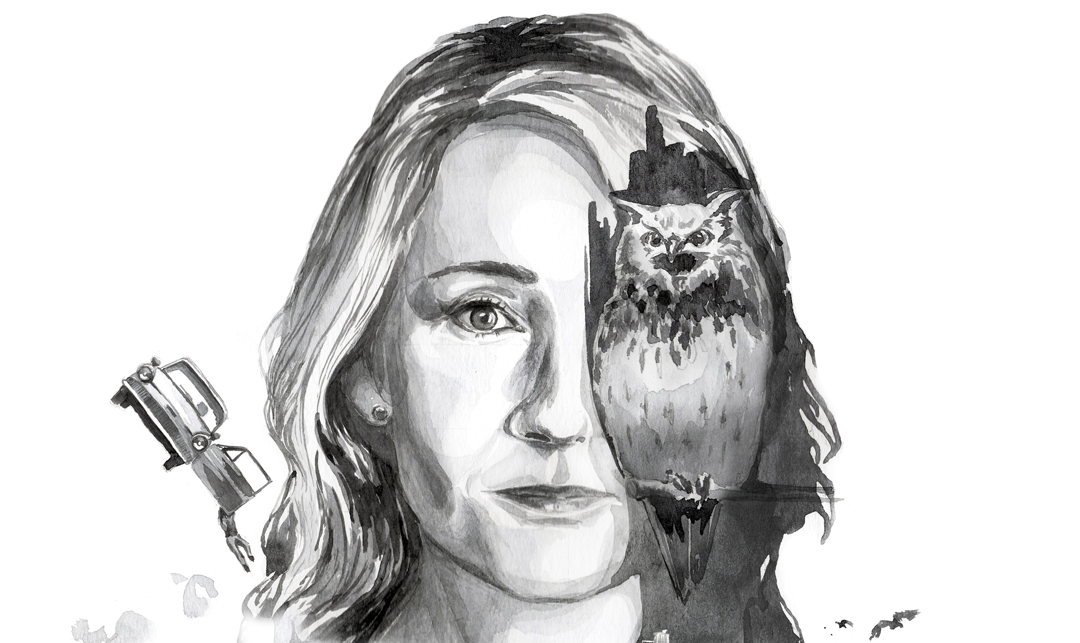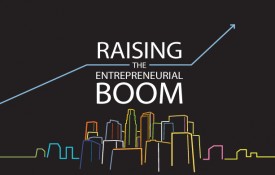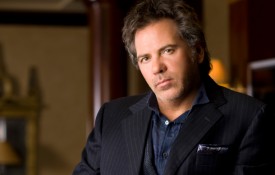In 1990, J.K. Rowling’s mother died, and so began the most difficult period in 25-year-old Rowling’s life. She left her job in Manchester, UK, to teach English in Portugal, and shortly thereafter met a journalist with whom she shared a love of Jane Austen. She married him and gave birth to her first child, but the marriage, in her words, was “short and catastrophic.” After separating, she moved back to the UK, this time to Scotland, with her young daughter in tow.
Unable to find a job, she started a teacher trainer course and lived on state welfare. She described her situation as being “as poor as it is possible to be in modern Britain, without being homeless.” She was a penniless, jobless single mother with a restraining order against her ex-husband.
Though J.K. Rowling is one of the wealthiest women in the United Kingdom, she fell off the Forbes Billionaire List in 2012 as a result of her generous philanthropic donations. Her nonprofiT—Lumos (an inside joke for Harry Potter fans everywhere)—fights poverty and advocates for children’s welfare around the world.
Many months she found herself unable to pay her rent, and in many others she struggled to put food on the table. She became clinically depressed and even contemplated suicide. She was a failure in her own mind: “The fears that my parents had had for me, and that I had had for myself, had both come to pass, and by every usual standard, I was the biggest failure I knew.”
But there were two things that kept Rowling going. The first was her young daughter, for whom she struggled to provide despite the circumstances.
The second was an idea. Shortly before her mother died, while riding a train from Manchester to London, she had an idea for a story of a boy who went to wizard school. When she arrived home she immediately began to write the story, but she put it on hold when her mother died and life descended into chaos. Yet through it all, she never lost faith in the story and her ability to tell it: “I was not the world’s most secure person…. I’d say I was someone with not much self-belief at all and yet in this one thing in my life I believed. That was the one thing in my life. I felt ‘I can tell a story.’”
So Rowling wrote. Despite the fact that she had never been an exceptional student (she applied but was denied admission to Oxford University), despite the fact that she had never had a story published, despite the fact that she desperately needed a job that paid her bills—she wrote. She wrote mostly in cafés, hoping that the walk there would lull her daughter to sleep so she could write uninterrupted.
In 1995, five years after starting, Rowling finished the first Harry Potter novel. She found an agent who sent the manuscript to 12 publishing houses, all of which rejected it. On the 13th try, Rowling—believe it or not—got lucky. An editor, Barry Cunningham from Bloomsbury, agreed to publish the novel but was not overly confident, advising Rowling to find a day job. He estimated that the book might make her a few thousand dollars at most.
We all know how the story ends. The seven books in the Harry Potter series have sold more than 400 million copies, making it the best-selling book series of all time. Movies based on the books became the highest grossing film series of all time.
Though J.K. Rowling is one of the wealthiest women in the United Kingdom, she fell off the Forbes Billionaire List in 2012 as a result of her generous philanthropic donations. Her nonprofit—Lumos (an inside joke for Harry Potter fans everywhere)—fights poverty and advocates for children’s welfare around the world.
Rowling believes that the reason she ultimately succeeded is because of the lessons she learned from failure, and she spoke extensively about failure when she addressed Harvard University’s graduating class of 2008: “Failure meant a stripping away of the inessential. I stopped pretending to myself that I was anything other than what I was, and began to direct all my energy into finishing the only work that mattered to me. Had I really succeeded at anything else, I might never have found the determination to succeed in the one arena I believed I truly belonged. I was set free, because my greatest fear had been realized, and I was still alive, and I still had a daughter whom I adored, and I had an old typewriter and a big idea. And so rock bottom became the solid foundation on which I rebuilt my life.”
Rowling learned through failure how to succeed. Persistence, guts, and effort all count. Determination is critically important. But so too are vision and realizing what not to do. Never did she focus on the negatives in her life; nor did she wallow in self-pity. Rowling stripped away the inessential—not just what was inconsequential, but also what is negative. And with ballpoint precision, she set herself up to realize a single goal.
[For more of Jeff Stibel’s Profiles in Failure articles, click here]













































